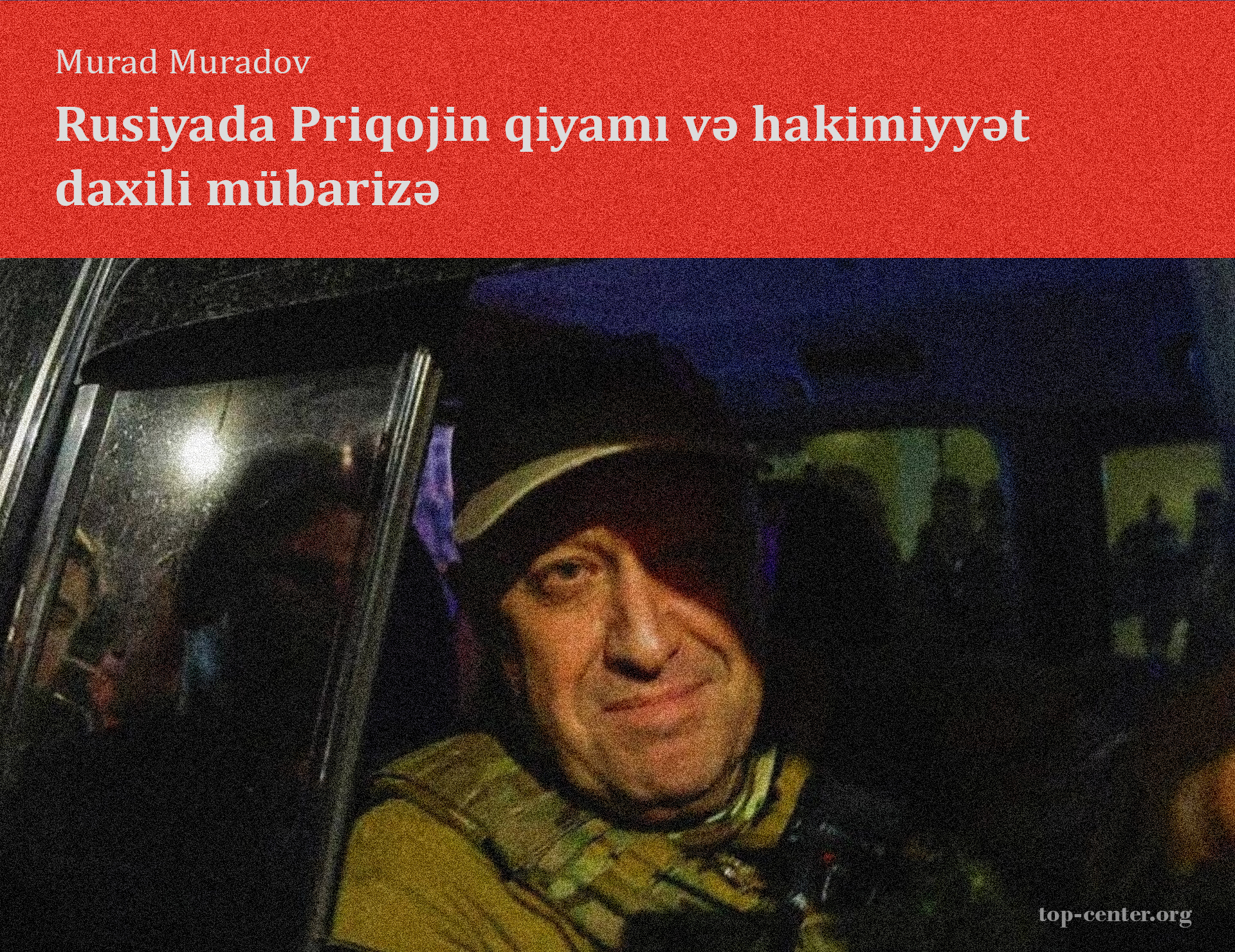Prigozhin`s mutiny and in-fighting in Russia

Prigozhin's short-lived uprising in Russia which came totally out of the blue for most, was most likely not a plot, but a genuine attempt at a coup d'état. Otherwise, it is very difficult to rationally explain the course of the process. The harshness of Vladimir Putin's reaction on the morning of the incident signaled his confidence that he would not back down and restore normal hierarchy in the military forces. For this reason, it was very unexpected that later on the same day he changed his mind, promised that no legal action would be taken against the fighters who participated in the uprising, and actually reconciled with Yevgeny Prigozhin; such a course has the potential to destroy Putin's reputation as a politician who stands behind his words. The fact that a number of important political and social figures in Russia remain silent on this issue or react too late is a sign that they no longer trust Putin's unconditional leadership. It seems that there are significant forces behind Prigozhin’s back, and it is thanks to them that this drastic reversal of Putin's position was possible. Otherwise, the president had no reason to go for it, and if the government really had the full support of the authorities, the most rational step would be to destroy Prigozhin and thus send a signal to all disaffected groups. Probably, the balance of power between the parties is relatively equal, the continuation of the struggle would inflict serious losses on the both sides and could even mean the beginning of a civil war. Realising this, they preferred to stop fighting at the expense of mutual concessions. Prigozhin also understands very well that he has already become Putin's enemy, and that the president would hardly allow him to survive if he did not have serious support from certain groups within the government.
The number one result of all this is that Putin no longer enjoys absolute power in Russia and there is some fragmentation within the ruling elite. Most likely, the split stems from disagreements over Moscow’s failures in the Ukraine war and its continuation, as well as the sense that some groups have lost Putin's influence. If the FSB (Federal Security Service) was previously believed to be hostile to Prigozhin, now it is possible that there are a significant number of high-ranking people in the security agencies who openly or secretly support him. It is also necessary to understand that by entering a big city like Rostov, Prigozhin has already fully established himself as a political figure. His statements, which exposed the weakness of the state administration, especially the army leadership, the sacrifice of people's interests to that of corporate groups, the role of those closed circles in the beginning of the war and subsequent defeats, can easily make Prigozhin the mouthpiece of millions of Russians who could be dubbed "patriotic opposition" and condemn the government not for being authoritarian or militaristic, but because of its inefficiency and corruption, considering it anti-national. Against the backdrop of the Ukrainian war, the image of people cheering the "Wagner" gangs on the streets will not be forgotten and puts the government in a very difficult position: from now on, taking steps against Prigozhin will be seen as a sign of weakness and fear.
The return of the "Wagner" group to combat positions means that the Russian leadership still has no intention of ending the war in Ukraine. If the events of June 24 really result in the resignations of Shoigu and Gerasimov, it can be assumed that the government wants to revive the army and turn the tide of the war. At the same time, if these expectations are not fulfilled and the military command remains in place, the contradictions between the "Wagners" who have become alternative troops and the regular army may grow. In such a case, the coordination and supply problems experienced by the Russian military machine in Ukraine will become more acute and will increase the possibilities of VSU (Armed Forces of Ukraine) to carry out effective attacks. Presumably, Prigozhin's goal was to withdraw his troops from Ukraine, where he had suffered heavy losses, and his systematic accusations and criticism of the Russian military leadership prepared the ground for this move. The news that "Wagner" will be engaged in African affairs after the uprising perhaps comes to this meaning. It is possible that Prigozhin intends to distance himself from this war and focus on the African operations that have played a major role in raising his profile in order to protect his own troops by making statements praising Ukraine's command and military in recent months.







